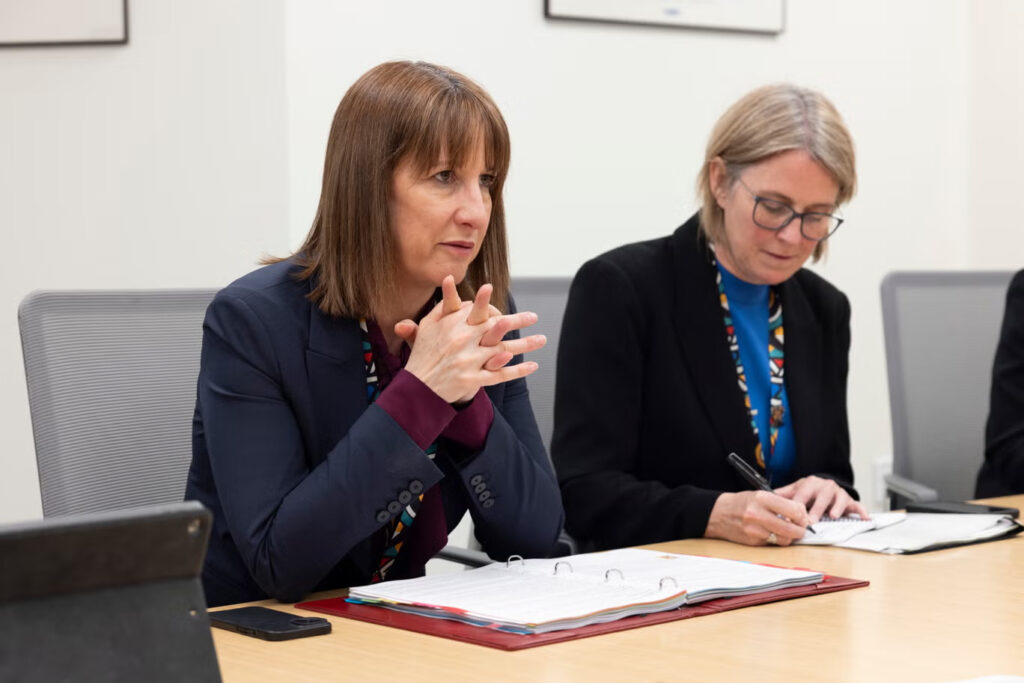Chancellor Rachel Reeves has underlined her commitment to ensuring Britain’s young people can work and travel in Europe, amid mounting pressure on the government to strike a youth mobility agreement with the European Union.
During a visit to Washington, where she held trade talks with her US counterpart Scott Bessent, Reeves expressed optimism about securing deals in Europe and across the Atlantic. Asked about a potential youth mobility scheme, she stated, “We’re going to bring down net migration and we aren’t going to return to freedom of movement.”
“We do want to see better trading relationships between our countries, and we do want to enable young people from Europe and the UK to be able to work and travel overseas. But we’ve got to get the balance right, because I do not want to see net migration increasing. I want to see net migration falling.”
Rachel Reeves
Her comments come after she highlighted Britain’s trading relationship with the EU as “arguably even more important” than its economic ties with the United States, ahead of her meeting with Bessent.
A youth mobility scheme would permit young people aged 18 to 35 to live and work across participating countries for up to two years. While EU officials view such an arrangement as essential to improving relations, the UK government has thus far resisted, concerned it could violate the Conservative Party’s pledge not to revive freedom of movement and inadvertently raise net migration figures.
Youth Mobility Scheme Faces Political Resistance
Currently, Britain has youth mobility agreements in place with Australia and a dozen other countries, including New Zealand, South Korea, Uruguay, Iceland, Hong Kong, and Taiwan. Despite these existing deals, Downing Street has persistently dismissed the possibility of establishing a similar arrangement with the EU.
Nevertheless, Reeves’ recent remarks suggest a potential shift in government thinking, just ahead of the crucial EU-UK summit scheduled for May 19. The summit is being viewed as a significant opportunity for Labour leader Sir Keir Starmer to reset Britain’s post-Brexit relationship with Brussels.
Supporters of a youth mobility scheme argue that the arrangement would not amount to a return to full freedom of movement, pointing to its clear restrictions, including the two-year time limit and the 18-35 age range.
Earlier this week, more than 60 Labour backbenchers sent a letter to Nick Thomas-Symonds, the minister leading EU negotiations, advocating for a “new and bespoke youth visa scheme” that would apply to UK and European citizens under the age of 30. In total, 62 MPs and 11 peers endorsed the call for action.
However, when questioned about the proposal, Environment Secretary Steve Reed maintained a firm stance, saying, “We’re not going to breach our manifesto commitments,” and reaffirmed that no youth mobility scheme is currently planned.
Meanwhile, Reeves remains focused on broader trade goals. Speaking after her discussions with Bessent, she voiced determination to finalize a trade deal with the US, even while acknowledging that challenges remain.
“Both of us want to see trade barriers fall. There’s still some more detail to work through. Both of us want a deal, but it’s got to be a deal that is in our national interest. I’m determined that we can get there. I know we can get there.
“Britain is an open trading economy. We benefit when trade barriers fall, and we want to see trade barriers fall with all of our trading partners.”
Rachel Reeves

Reeves’ efforts come at a time when ministers are also urgently seeking exemptions from Donald Trump’s sweeping tariffs, which continue to disrupt global markets.
As negotiations continue on both sides of the Atlantic, the coming weeks could prove pivotal for Britain’s youth and its standing in global trade.
READ ALSO: Internal Discontent As NPP Calls for Amendment Proposals





















